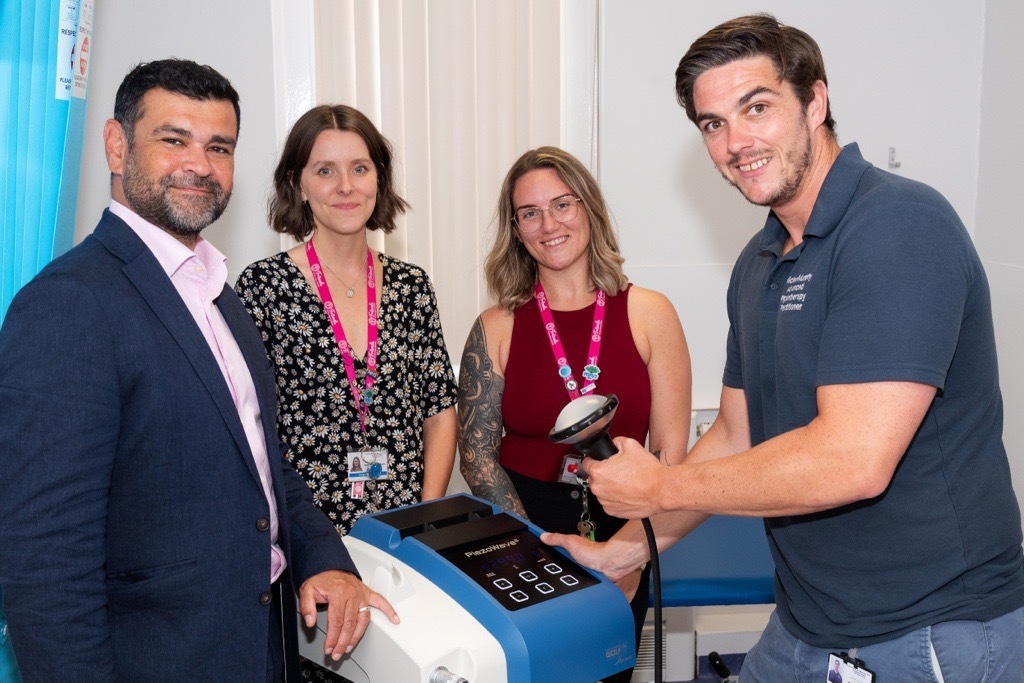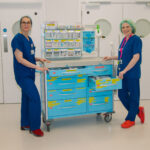Posted on 28 July 2025

Patients living with a common and often painful hip condition are now benefitting from a new, cutting-edge treatment at The Robert Jones and Agnes Hunt Orthopaedic Hospital (RJAH) – thanks to funding from the League of Friends.
Focused shockwave therapy, a non-invasive procedure, has shown outstanding results in patients suffering with Greater Trochanteric Pain Syndrome – also known as hip bursitis.
The treatment was introduced following a major research study led by Mr Robin Banerjee, Consultant Orthopaedic Surgeon, at the Oswestry-based hospital.
Conducted over two years and involving more than 100 patients, the study compared standard steroid injections with focused shockwave therapy. Results showed that up to 80% of patients treated with shockwave therapy experienced improvement, compared to just 15% of those who received injections.
The findings were first presented to the British Hip Society and published in 2021. After further evaluation by NHS and NICE, the treatment was recognised as a valid and effective option and with funding from the League of Friends, RJAH has now become the first NHS hospital in the UK to offer it.
Mr Banerjee said: “We were finally given the go-ahead to start treating patients this year – but only after the League of Friends very kindly offered to pay for our new focused shockwave machine. We have treated over 50 patients so far, with more than a hundred still waiting.”
“To say it has been a labour of love would be putting it mildly, but thanks to the hard work of my co-authors, the Orthopaedic Institute for funding the original study, our management team, especially Victoria Allen and most importantly, the League of Friends, we are now able to offer this quick, cost-effective and successful treatment to people across the UK.”
Victoria Sugden, Charity CEO, said: “We are incredibly proud to fund this equipment and help bring such an innovative and effective treatment to RJAH.
“It’s a fantastic example of how charitable donations can directly improve patient care, and we’re delighted to see it already making a real difference.”








